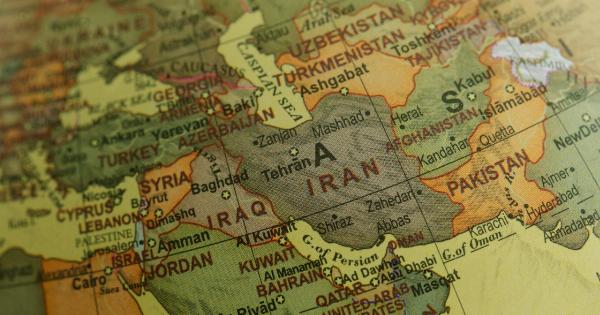Human beings have been searching for happiness and contentment since the dawn of time. Philosophers, religious leaders, and scientists alike have attempted to understand what brings us the most joy in life.
One relatively recent theory suggests that a key factor in overall life satisfaction is a belief in unity, or the idea that everything in the world is interconnected and interdependent.
What is Belief in Unity?
Belief in unity is essentially the idea that everything in the universe is connected, and that human beings are a part of this interconnected web.
This belief system goes beyond just recognizing the physical connections between things, and instead takes a more holistic approach – everything is not only connected, but also dependent on each other.
Some people might express this belief through a religious or spiritual practice, while others might come to it through scientific exploration or personal experiences.
In general, those who embrace this way of thinking tend to place a strong emphasis on compassion, understanding, and cooperation.
The Science behind Belief in Unity and Life Satisfaction
Over the past few decades, scientists have started to explore the relationship between belief in unity and overall life satisfaction.
One study published in the Journal of Happiness Studies found that people who had a stronger sense of interconnectedness reported lower levels of anxiety and depression, as well as higher levels of life satisfaction.
Another study, published in the Journal of Positive Psychology, found that belief in unity was significantly associated with happiness, gratitude, and a sense of purpose in life.
Researchers believe that the sense of connection and purpose that comes with this worldview can be incredibly fulfilling.
Impact on Personal Relationships
Many experts believe that a belief in unity can have a significant impact on personal relationships. When we recognize that we are all connected and dependent on each other, it becomes easier to empathize and work together towards common goals.
This can lead to stronger and more fulfilling relationships with partners, friends, and family members.
In fact, a study published in the Journal of Family Psychology found that couples who shared a belief in unity reported more satisfaction and intimacy in their relationships, as well as fewer instances of conflict and stress.
It seems that this worldview can help to create a sense of harmony in all types of relationships.
Connection to Environmentalism
Belief in unity can also have a significant impact on how individuals view environmentalism and the natural world.
When we see ourselves as a part of a larger interconnected system, it becomes easier to understand the importance of taking care of the planet and its inhabitants.
This belief system can help us to recognize that the well-being of the environment and all living creatures is interconnected, and that taking actions to protect the environment can have a positive impact on our own life satisfaction.
In fact, a study published in the Journal of Environmental Psychology found that people who had a stronger sense of interconnectedness with nature were more likely to engage in pro-environmental behaviors.
Challenges to Belief in Unity
While there are certainly benefits to embracing a belief in unity, it can be a challenging worldview to hold.
In a world where divisiveness and conflict seem to be the norm, it can be difficult to see ourselves as interconnected and dependent on one another.
Additionally, some individuals may struggle with the idea of giving up a sense of individuality or autonomy in order to embrace this way of thinking.
However, proponents of belief in unity argue that this is not necessary – recognizing interconnectedness does not mean giving up a sense of self, but rather understanding how the self fits into a larger system.
Conclusion
Belief in unity is a relatively new way of thinking that has gained popularity in recent years.
This worldview suggests that everything in the universe is interconnected and interdependent, and that recognizing this can lead to greater life satisfaction, stronger relationships, and a sense of purpose.
While there are certainly challenges to this way of thinking, especially in a world where division and conflict can seem overwhelming, proponents argue that it can lead to a more compassionate and harmonious world.
And, as research has shown, it can have positive impacts on both personal and environmental well-being.




























